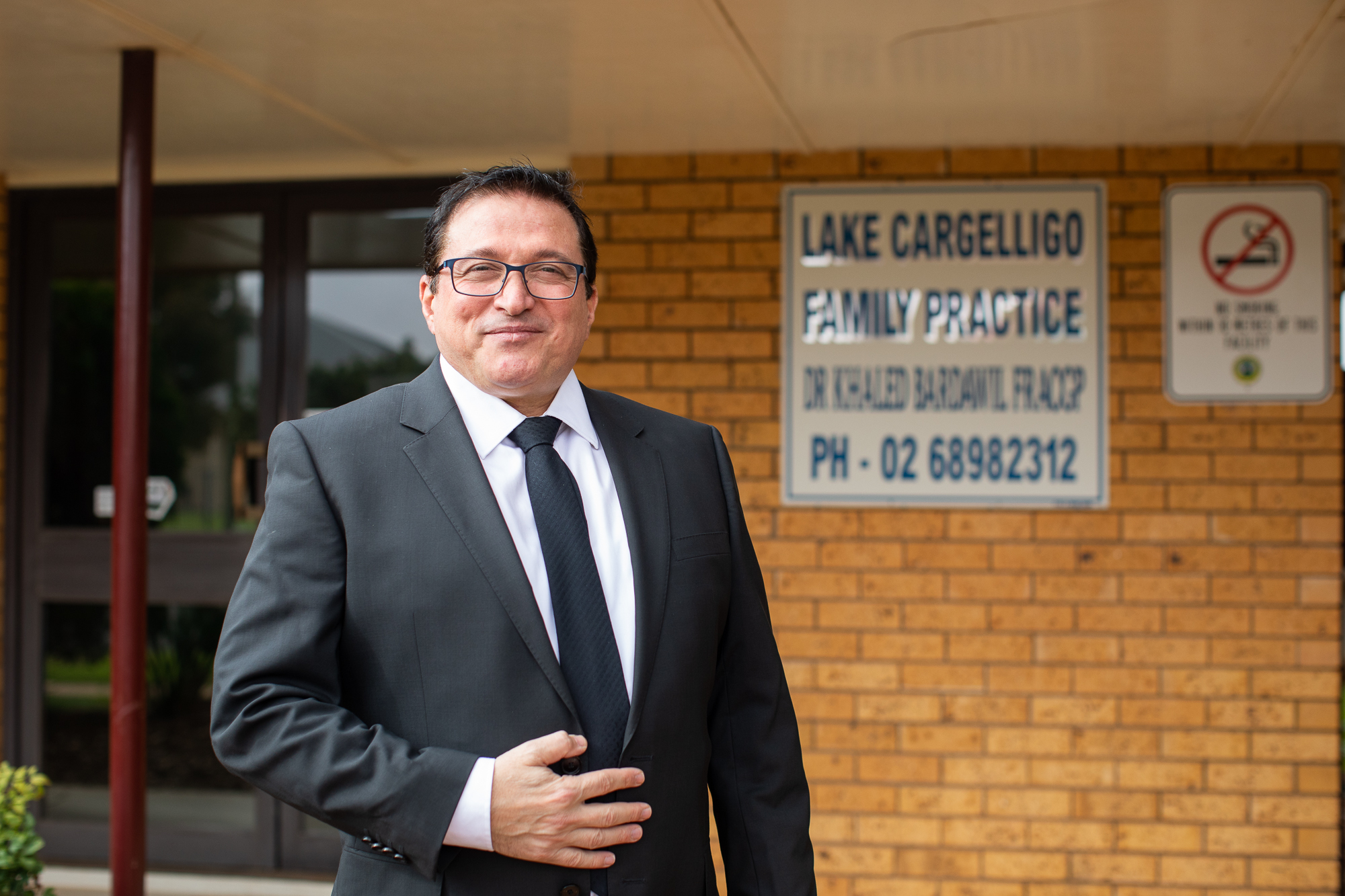Recognising the signs
Dr Khaled Bardawil is on the frontlines of community health.
For the past 12 years, Khaled has been the GP in Lake Cargelligo, a town of about 1500 people located in Central West NSW. During this time, he has seen his community impacted by population decline, economic downturn and weather events such as drought.
“I’ve seen big changes. There has been a rise and fall in the population. People have been coming in and out depending on the availability of work on farms and in town.
“With the current drought, a few patients have come forward to say they are depressed. They are seeing their animals dying and they can’t do anything about it.
“Out on the road, you can see the changes. If I'm here for a couple of weeks and then I go to Griffith or Wyalong or somewhere, then you understand more what the community is suffering. You can feel their pain in every way. The physical pain and the mental pain.”
Khaled also witnesses the other side to the community’s suffering and has come to understand that part of being in a small community is that other people have your back.
“Some patients do present talking about depression and I know that other members of the community will notice when they are not themselves in any way and will tap them on the shoulder and say, ‘Are you okay?’
“They talk to them and maybe advise them to come and see the doctor. Many patients come here and say, ‘Look, I was talking to my friend the other day, and they said I should come and talk to you.’ So then I can ask them about what is going on, and perhaps refer them to other services.
“Practice-wise, we are doing our best. For every patient that comes in, even if they come for a flu injection for example, we always try to explore what else is going on their lives – if they are ok. If they have a problem, then they can tell us.”
Putting wellbeing first
There’s no doubt being at the coalface of mental illness can take its toll on medical practitioners like Khaled, and he is mindful of this fact.
“It’s usually very difficult for males to deal with or talk about, and a lot of the time it's very advanced when they come here. Many of them break down at the surgery. In fact, just talking about it can make me a bit emotional, because I remember how they present.
“I have a rule that as soon as I leave the surgery, I don't take my work home with me. Home is my private time. I try to keep my mind with my family, and we talk with each other, not about work but just normal chats.
“If I'm really exhausted, then I take a weekend off or and go and enjoy myself. I don't answer my phone. I don't listen to the news. I don't do anything, just enjoy myself.
“I also volunteer my time when I can. I was a member of Rotary and while I can’t say that I was an active member, I did my best to get there. My wife and I are also involved with some committees in town like the Christmas Carnival. I feel on top of the world being involved with that and seeing the kids so happy.”
Khaled said being part of a small community that bands together in tough times like Lake Cargelligo does is important to him.
“I have seen many times when people come together, either family members or friends, to help each other. People will help somebody else pro bono just so they can get through a rough time. That makes me proud and it’s why I'm still here after 12 years.”
Simple advice
Khaled said tough times can lead to depression and anxiety, but these conditions can sometimes be hard to spot in yourself or others.
“With depression, you might notice that your loved one wants to be at home all the time.
“They don't want to go anywhere. They are sad or angry. They might not be sleeping well or sleeping too much, not eating too well or eating too much. They might be drinking too much. Any change of behaviour that is unlike that person is something to look out for. Certainly, if they start talking about ending their life, it’s time to seek help.
“With anxiety, they might see something in the field, sheep or cows dying or there's no water or there's no crops, and they have a panic attack. They might start having palpitations, get sweaty hands, feel like they're going to faint. That’s when people start ringing, asking for help.”
When it comes to helping his community take care of their wellbeing, Khaled’s advice is simple:
“Eat healthy, sleep well and exercise every day. This will improve your physical wellbeing and slowly it will improve your mental wellbeing as well.
“But if you feel that there is something wrong, you should seek help. Talk to your GP, because there are resources right here to support you.”
The Australian Government resource Head to Health has digital mental health and wellbeing resources, for yourself or for someone you care about – visit headtohealth.gov.au.
Anyone who is experiencing a mental health emergency (themselves or others) should call Mental Health Line 1800 011 511, Lifeline 13 11 14 or call 000.




